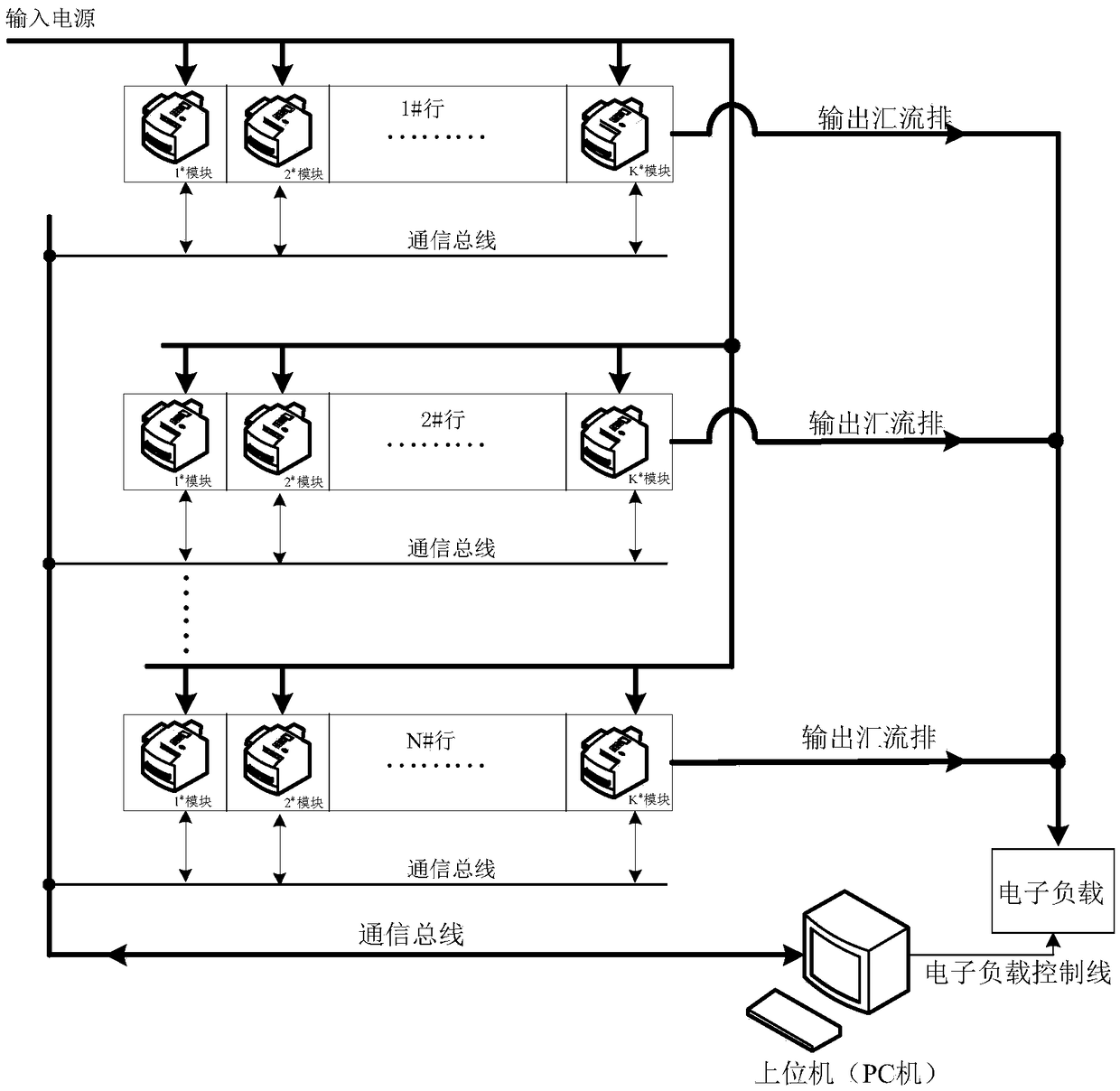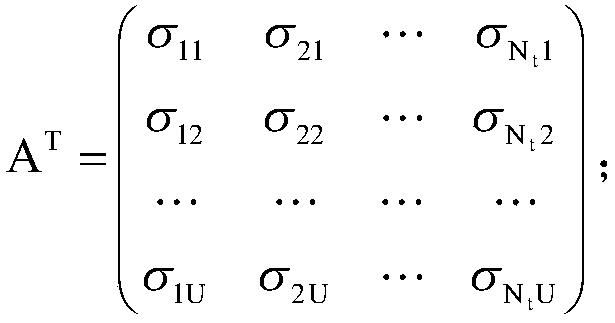Evaluation Method of Current Sharing Performance of Parallel Power Supply System Based on Current Sharing Standard Deviation Matrix 2 Norm
A technology of power supply system and evaluation method, applied in electrical digital data processing, special data processing applications, instruments, etc., can solve problems such as the evaluation method of current sharing performance of parallel power supply system that has not yet been found, and achieve fast calculation speed, long life and reliability. Strong and practical effect
- Summary
- Abstract
- Description
- Claims
- Application Information
AI Technical Summary
Problems solved by technology
Method used
Image
Examples
Embodiment Construction
[0026] Embodiments of the present invention will be further described below with reference to the accompanying drawings:
[0027] The present invention provides a parallel power supply system current sharing performance evaluation method based on the 2 norm of the current sharing standard deviation matrix, mainly based on the standard deviation matrix of the relative deviation between the actual current of the module and the ideal reference current under different load conditions in the following parallel power supply system 2-norm mathematical model: the diagram of the parallel power supply system is as follows figure 1 As shown, it mainly includes the upper computer (PC), program-controlled electronic load and power module. The main function of the host computer (PC) is to obtain the module IP address and module output current, control the operating current of the program-controlled electronic load, calculate the standard deviation matrix 2 norm of the current sharing, and o...
PUM
 Login to View More
Login to View More Abstract
Description
Claims
Application Information
 Login to View More
Login to View More - R&D
- Intellectual Property
- Life Sciences
- Materials
- Tech Scout
- Unparalleled Data Quality
- Higher Quality Content
- 60% Fewer Hallucinations
Browse by: Latest US Patents, China's latest patents, Technical Efficacy Thesaurus, Application Domain, Technology Topic, Popular Technical Reports.
© 2025 PatSnap. All rights reserved.Legal|Privacy policy|Modern Slavery Act Transparency Statement|Sitemap|About US| Contact US: help@patsnap.com



